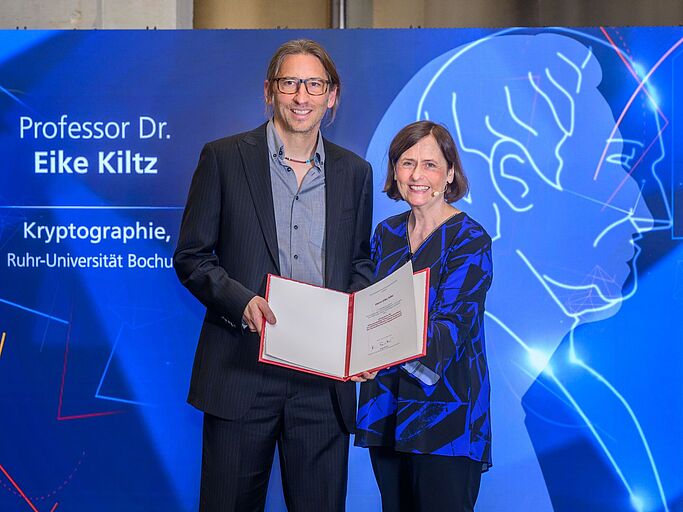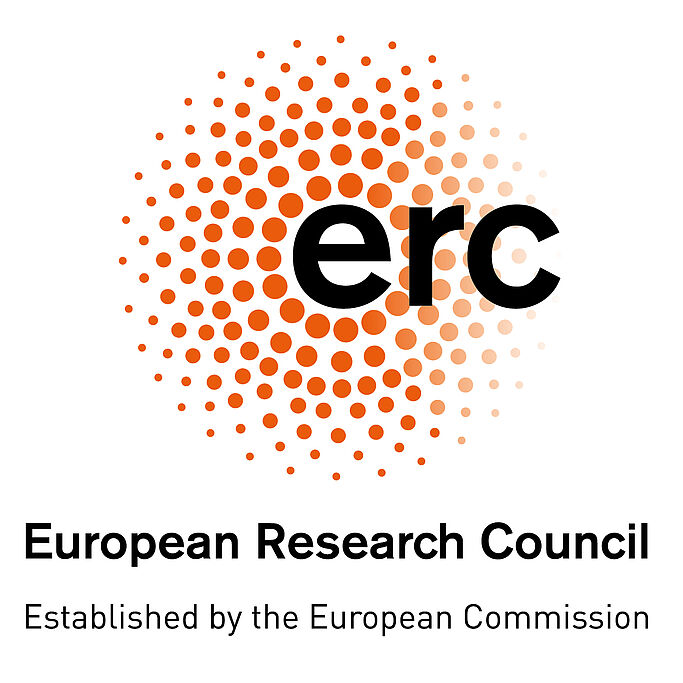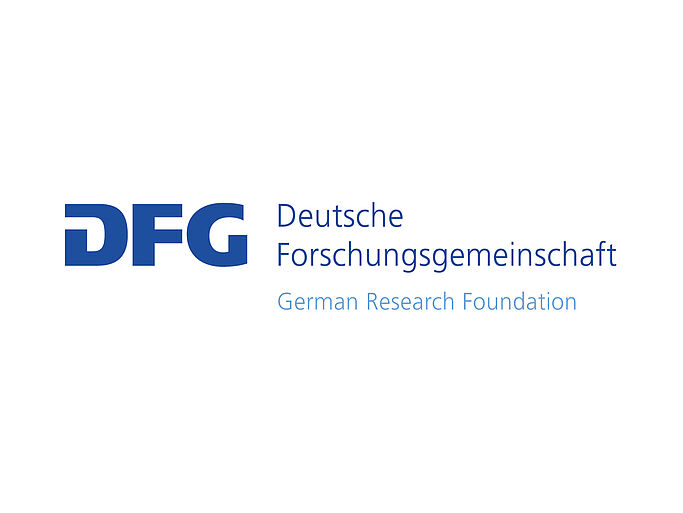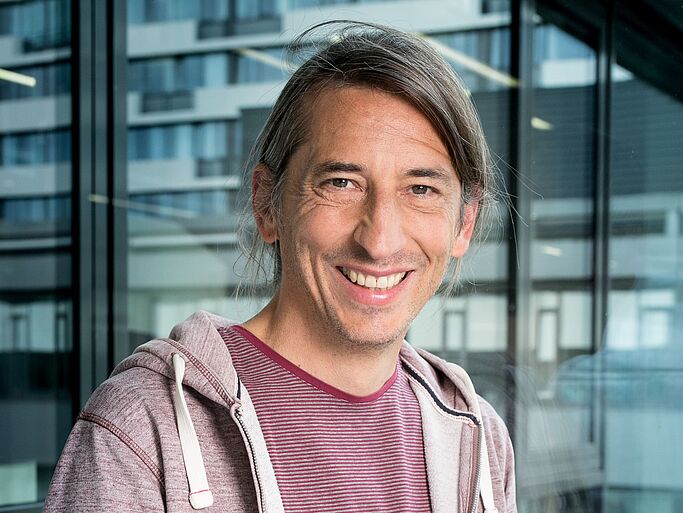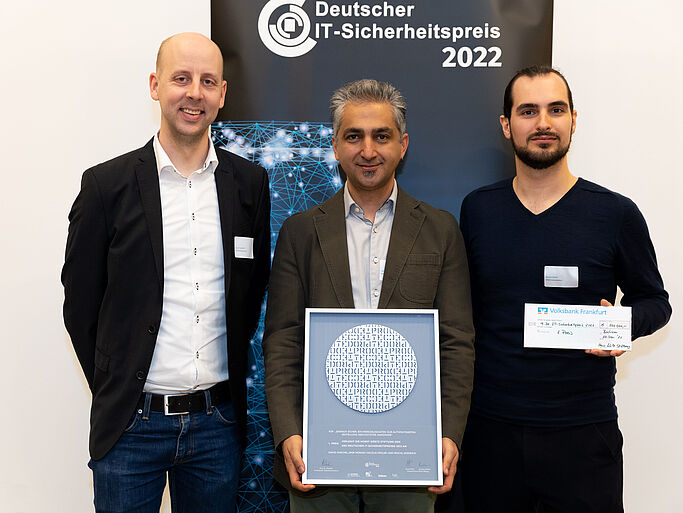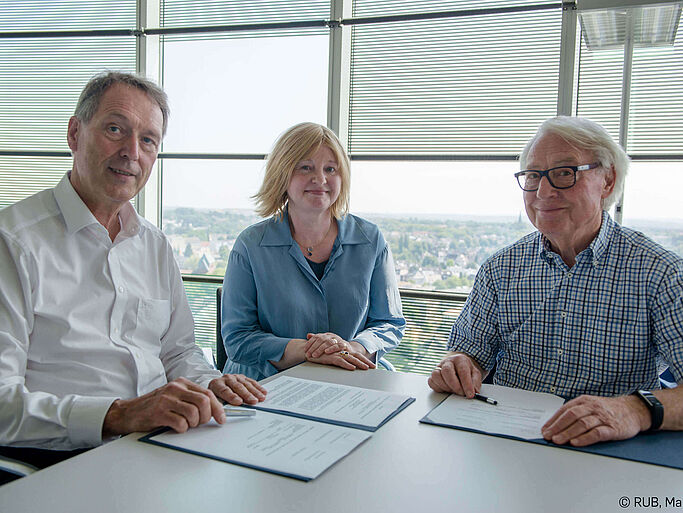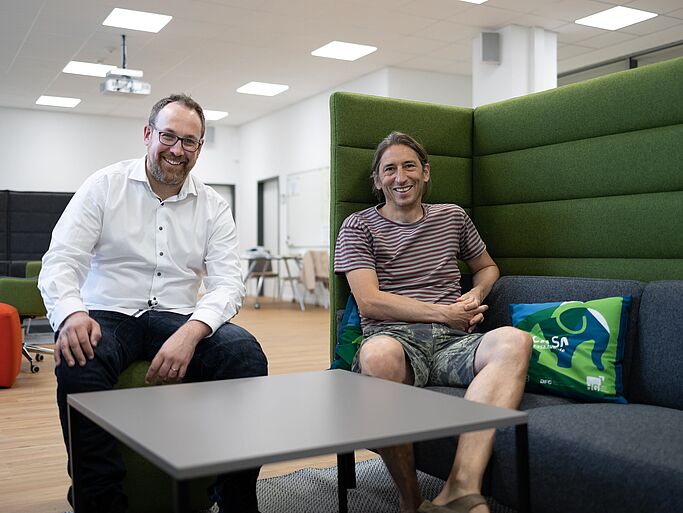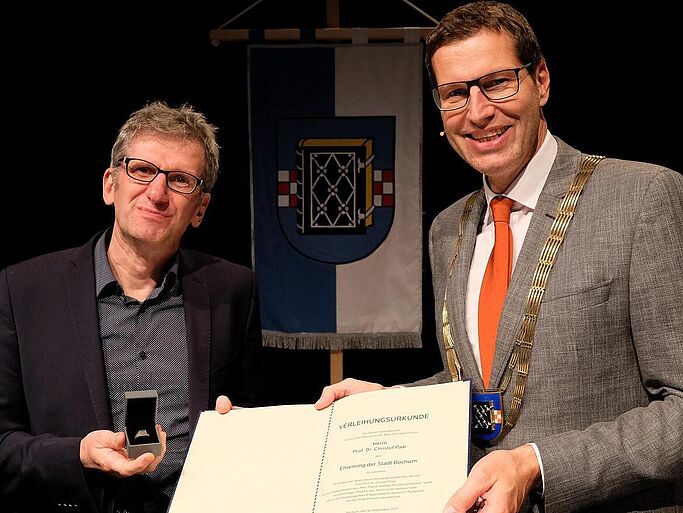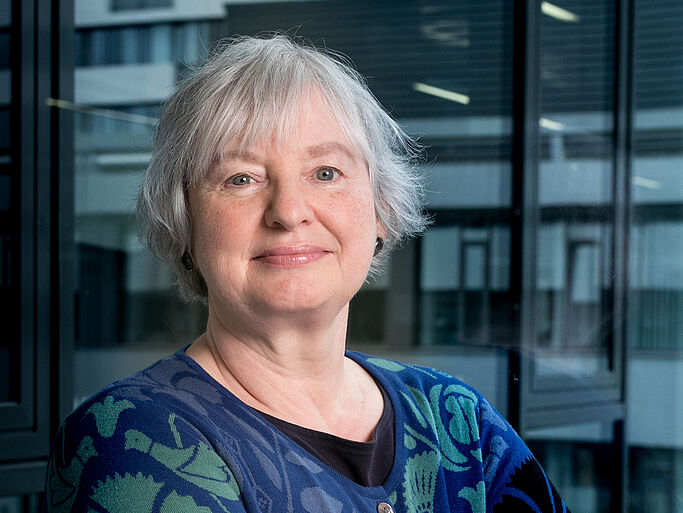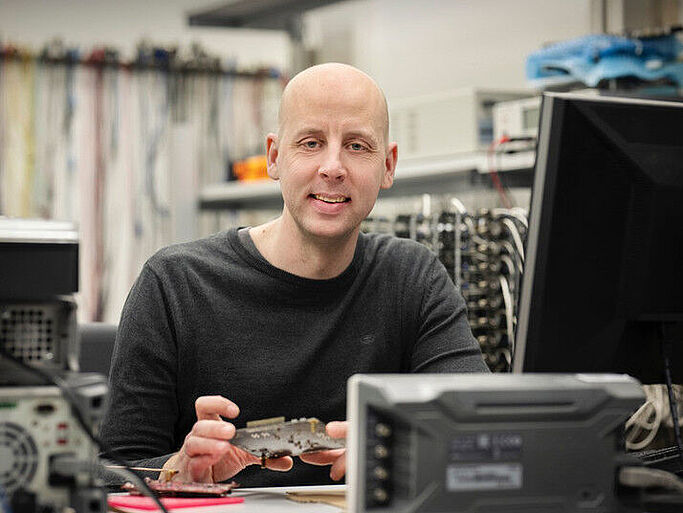National Institute for Standards and Technology (NIST)
With their submitted encryption algorithms CRYSTALS-KYBER and CRYSTALS-DILITHIUM, CASA researchers Eike Kiltz and Peter Schwabe have won the global NIST standardization process for post-quantum cryptography in 2022. This means that encryption methods developed in Bochum, which even quantum computers cannot break, will become the standard in the USA and worldwide.
To the News Article
Honorary Ring of the City of Bochum
For over 50 years, the City Council has been awarding the "Honorary Ring of the City of Bochum." This honors individuals who demonstrate exceptional commitment and contribute significantly to the city. In addition to continuous engagement, the recipients' values, principles, and benevolent critical engagement with society in their respective fields are also considered. Since 2021, Christof Paar is also among the recipients of the Honorary Ring.
To the News Article
National Academy of Sciences Leopoldina
The German Academy of Natural Scientists Leopoldina, founded in 1652 and now known as the National Academy of Sciences Leopoldina, comprises approximately 1,600 members from various scientific disciplines. Its mission is to represent German science internationally and provide advice to politics and the public. Christof Paar and M. Angela Sasse are among the members of the Leopoldina (2019 & 2023).
North Rhine-Westphalian Academy of Sciences, Humanities and the Arts
The members of the North Rhine-Westphalian Academy of Sciences and Arts (Nordrhein-Westfälische Akademie der Wissenschaften und der Künste) engage in dialogue with politics, business, culture, as well as scientific institutions both nationally and internationally. Only outstanding researchers and artists are admitted. M. Angela Sasse was elected to the Academy in 2021.
To the News Article
Young Academy of the North Rhine-Westphalian Academy of Sciences and Arts
Membership in the Young Academy (Junges Kolleg) is a significant recognition for young scholars and artists in North Rhine-Westphalia. Fellows receive an annual grant of 10,000 euros for up to four years, providing them with the freedom to pursue their own research or artistic endeavors. The prerequisite for membership is outstanding academic achievements at a North Rhine-Westphalian university or research institution. Tim Güneysu was admitted to the Young Academy in January 2015, Pascal Sasdrich in January 2024.
To the News Article
Karl Heinz Beckurts Prize
The Karl Heinz Beckurts Prize honors outstanding scientific achievements that are crucial for the development of innovative applications in industry. In 2024, the Karl Heinz Beckurts Foundation awarded Christof Paar the prize for "advancing the practical implementation of security solutions in industry."
To the News Article


